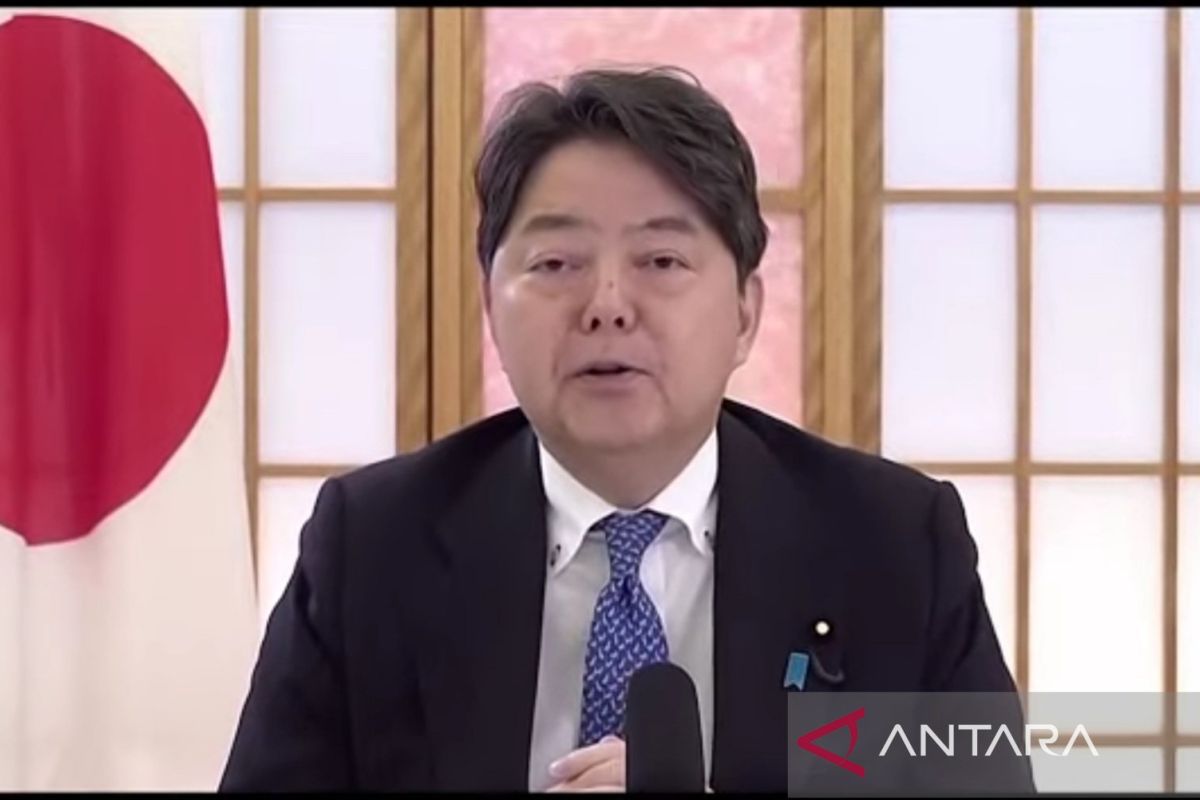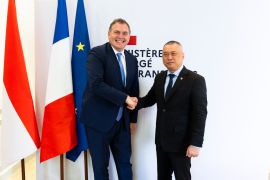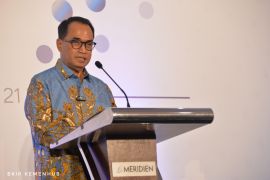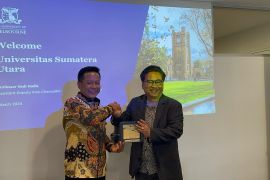"It is (also) a key word for understanding complex international affairs," Hayashi observed during a symposium on "Mobility among ASEAN and Japan: Its Future and How We Shape It," which was held by the National Research and Innovation Agency (BRIN) and the Japan Foundation here on Tuesday.
In his remarks, Hayashi said that the foundation for the current strong relations between Japan and the Association of Southeast Asian Nations (ASEAN) is trust and respect.
This trust and respect have been forged through various kinds of mobility carried out between people on both sides, he added.
The Japan Foundation, he said, has contributed to strengthening relations between the people of Japan and ASEAN by promoting cultural and intellectual exchanges and supporting language and educational projects carried out by Japan.
In order to strengthen the relationship among the younger generation, Japan, through the Japan Foundation, and BRIN, under Indonesia's ASEAN chairmanship this year, have organized a symposium to address problems arising from people's mobility between ASEAN and Japan.
In addition to building a resilient and sustainable future, mobility also has an important role in creating lasting friendships and has provided a golden opportunity at the moment of the 50th anniversary of ASEAN and Japan relations, said Hayashi.
"This is important to facilitate the delivery of ideas and wisdom in addition to the movement of people and goods," he added.
Therefore, he said he hoped that the study symposium on people's mobility would lay the foundation for this development.
In the meantime, minister and deputy head of mission of Japan to ASEAN, Yasunori Kodama, said that mobility is an important pillar to strengthen cooperation between ASEAN and Japan.
"Connectivity is also important for Indonesia, in its chairmanship of ASEAN, to mainstream ASEAN issues and ASEAN's role as a center of growth," he added.
Increased mobility or connectivity between the people of ASEAN and Japan could further enhance social and economic relations on both sides, he continued.
Hence, Japan has made several efforts to improve connectivity, including through a student and youth exchange program called JENESYS (Japan-East Asia Network of Exchange for Students and Youths). At least 36 thousand ASEAN youths have been invited to Japan since its inception in 2007.
Since 2018, Japan has also implemented an exchange program under which it has targeted to invite one thousand high school students from ASEAN and learn about its science, technology, and culture.
These efforts, said Kodama, have been made to strengthen relations between the people of ASEAN and Japan, as well as to support one of the pillars of cooperation of the ASEAN Outlook on the Indo-Pacific (AOIP), which includes connectivity between people.
"So this supports the implementation of AOIP, which will be one of the core of our future cooperation and friendship," he added.
Related news: ASEAN Plus Three must support inclusive Indo-Pacific: Minister
Related news: Japan strives for sea order, pushes free, open Indo-Pacific
Related news: Indonesia seeks stronger ASEAN-Japan cooperation in Indo-Pacific
Reporter: Katriana
Editor: Azis Kurmala
Copyright © ANTARA 2023








